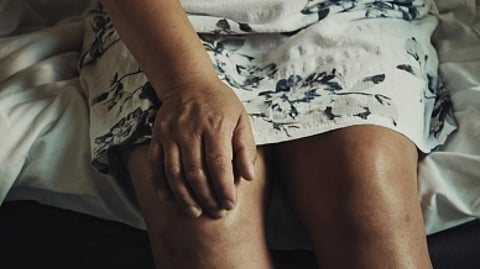

THIRUVANANTHAPURAM: Kerala is poised to achieve another significant public-health milestone — eliminating rheumatic fever (RF), a potentially serious inflammatory disease that can lead to rheumatic heart disease (RHD), a life-threatening heart complication. The number of reported cases in the state has sharply decreased, from 40 in 2019 to just 15 in 2024 — well below the World Health Organization’s threshold. Remarkably, it has achieved this without the support of a national-level control programme.
While the WHO had set a target of a 25% reduction in acute rheumatic fever (ARF) cases among those under 25 by 2025, Kerala surpassed this goal, reporting a 70% drop between 2019 and 2024. Health experts attribute this dramatic reduction to the state’s high human development index which ensures better access to healthcare services.
“Kerala has set an example for the country in controlling RF and reducing incidence of RHD. We are now on the cusp of disease elimination,” said Dr S Abdul Khader, former professor and head of the department of cardiology at Kottayam Government Medical College and founder of the Rheumatic Heart Club Kerala (RHCK), an NGO that has been working since 1997 to prevent and control RF and RHD.
He said previous attempts by the Modi government to implement a national RF control programme could not succeed due to the onset of Covid.
Though the numbers have dropped significantly, RHCK remains focused on the elimination of rheumatic fever through early detection and treatment, much like the eradication of polio in 2012. RF most commonly affects children aged 5-15 and is caused by streptococcus bacteria, said Dr Lekshmi S, head of the department of paediatric cardiology, SAT Hospital. “If left untreated, it can lead to RHD, a once-dreaded condition that often orphaned families or left victims with lifelong heart complications.
Patients with RHD often require ongoing care, sometimes until the age of 25 or 45,” she said. Before the 21st century, RHD was a life-threatening condition, as the surgical repair of damaged heart valves was prohibitively expensive. However, the battle against RF and RHD, which began under the leadership of the E K Nayanar government in 1997, has entered a new phase.
Dr Khader said General Education Minister V Sivankutty has responded positively to RHCK’s proposal to start school screenings next academic year to identify undetected cases and prevent further progression of RF.
It is estimated that around 10,000 RHD patients currently live in the state. Many cases remain undetected, with detections mostly happening during a heart checkup during pregnancy or before a surgery, according to experts.